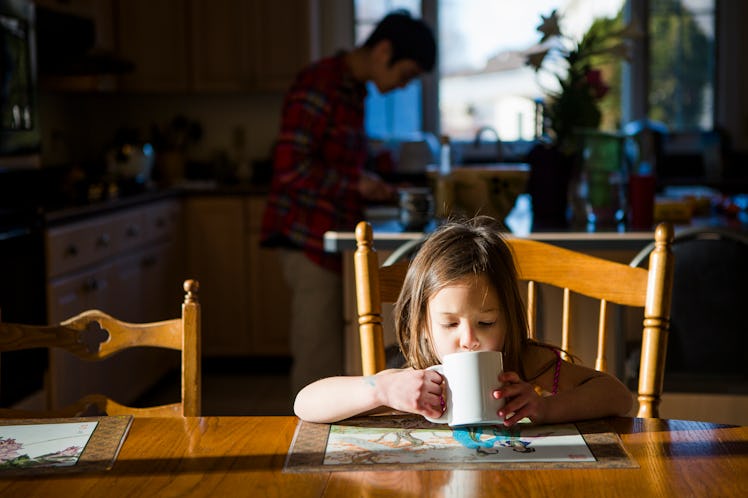Is Coffee Bad For Kids? A Nurse And Dietician Explain
Black coffee may not be as bad as sugary soda or energy drinks, but there's still no reason kids need caffeine.

Coffee has been linked to health benefits in adults, but it may be more dangerous for children. So is coffee bad for kids? It’s still unclear how caffeine, a stimulant and the active ingredient in coffee and most energy drinks, impacts developing brains.
“I don’t see any reason that young children should be consuming caffeine,” says Terry Cralle, a nurse and member of the Better Sleep Council. “We do not know how caffeine affects brain development in children or teens.”
It’s not clear how many children drink coffee, but more than 70% of kids consume caffeine on a given day, according to a report from the American Academy of Pediatrics (AAP). And caffeine consumption has more than doubled among adolescents since 1980, research shows.
Kids who drank either coffee or soft drinks had double the risk of sleep disturbances in a large study of more than 4,000 school-aged children. Although the FDA does not have formal recommendations regarding caffeine intake for children, Canada has a maximum limit of 45 mg per day (about one can of soda). The AAP is even more strict and discourages parents from allowing consumption of caffeinated beverages altogether.
There are some experts, however, who are less worried about coffee than other caffeinated beverages. Unlike soda, for instance, coffee tends to be quite bitter. “I’m not opposed to kids having coffee,” says dietician Kristin Koskinen. “Frankly, the bitter taste usually keeps kids away from it or limits their intake to a sip or two.”
Still, it may be wise to keep your children away from even small sips of coffee. “Talk to your children about the dangers of caffeine in the same way you discuss drugs or alcohol. Warn children that consuming too much could cause serious problems,” Cralle says. “We don’t know the risks related to early or excessive consumption of caffeine.”
This article was originally published on